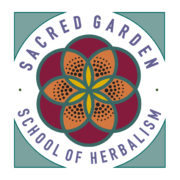UPCOMING EVENTS
Conscious Kids Story & Tea Time
with Lakeja Baylor

Foundational Herbology
9 month program is now enrolling!

Registration closes March 15th
+++++++++++++
Women’s Herbal Wellness Class Series
with Alicia Garza
Grounded Sound Baths
with Terrie Weaver

Fridays March 6th & 20th
6:00 pm
*************
3-Day Immersion: Reading the Body Immersion
with Margi Flint

October 23rd-25th : 10am-4pm
Hold your spot here







Ayurvedic Detox Tips
/in Herb of the Month /by Ashley DavisYou may have noticed your cravings for fats & sweets already subsiding as we begin to transition from the Vata season to Kapha season this month. Kapha season is a time of cold & dampness. We bring balance to these energetics by choosing warm and light foods like:
broths, radishes, beans, quinoa, brown rice, millet, buckwheat & cooked green vegetables.
You will want to cut back on heavy and cold foods such as:
dairy, wheat, oats, bananas, coconut, avocado, sugar and red meats.
Warming spices greatly support us this time of year by keeping the digestive system warm & clear of mucus (Cardamom, Fennel, Ginger, Turmeric, Mustard, Cinnamon, Pepper)
Herbal Formulas:
Trikatu– a classic formula containing equal parts ginger, black pepper and Pippali long pepper. Used to overcome mucus, aid a sluggish digestion, improve circulation and warm the interior. Indicated for clear damp discharges and anyone living in cold, damp climates.
Triphala– another classic formula comprised of 3 fruits. Triphala is a very balanced and gentle formula that can be used daily to promote good digestion and support elimination. It is a mild laxative that helps with bowel regulation. Because it is balanced, tonifying, and food-grade, it is non-habit forming and a great choice for anyone wanting to keep their channels clear of toxic accumulation.
Guggula– a relative of myrrh, Guggul is the resin from the salai tree. It is considered the be most potent in countering ama (toxic accumulation including cholesterol and thickened mucus). Think of ama as anything that gunks up the works of a body flowing efficiently. It has a reputation for reducing kapha and therefore reducing fat in the body. It is often combined with triphala to counter obesity.
You can find the above products on our shelves. Remember, good blood begins with good digestion. If you keep your digestive fire strong, your system clear of mucus, your bowels regular and your diet in harmony with the seasons, then you will digest your food efficiently without creating excess ama.
**This information is for educational purposes only and is not intended to diagnose or treat any disease**